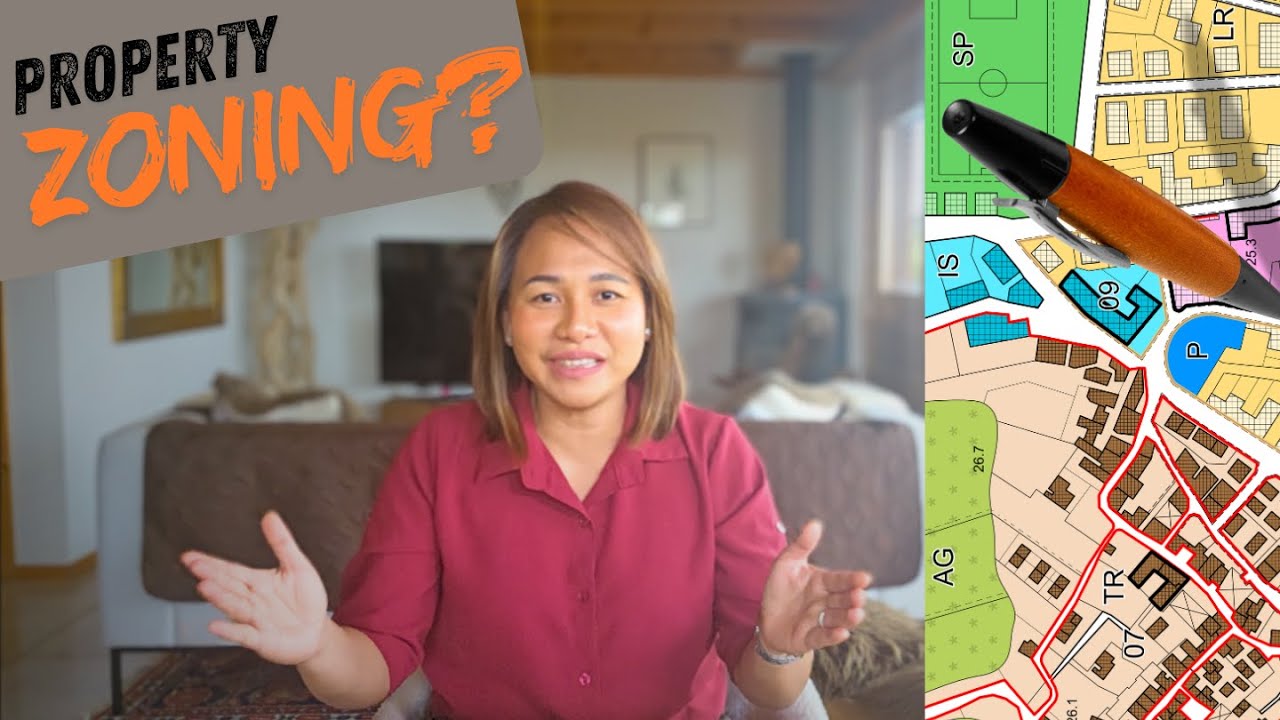https://youtu.be/pEHE6g-BSPA Zoning Classification in the Philippines Leave a Reply Cancel reply Logged in as Jyan Vale. Edit your profile. Log out? Required fields are marked * Message* Welcome back to our Property Wais Pinoy channel, where we learn important tips on how to invest in properties wisely. I’m Atty. Donna, your property lawyer. We’ve already created two videos on land classification. If you haven’t watched them yet, you can check them out [here] and [here]. For our final installment on land classification, we’ll talk about the different zoning classifications in the Philippines and their implications on your property investment—so make sure to stay tuned and watch until the end. Why Zoning Matters Imagine this:You finally saved enough to buy land and pursue your dream of starting a piggery. But when it’s time to secure a business permit, the local government rejects your application—because your land is in a residential zone. This is why zoning laws are essential. They dictate land use across areas and affect everything from building homes to establishing businesses. Types of Zoning Classifications in the Philippines Residential ZonesAreas designated primarily for housing—can include single-family homes, duplexes, apartments, and small community-serving businesses. Commercial ZonesZones for economic activity—offices, shops, malls, and entertainment venues. Designed to meet the service and business needs of the population. Industrial ZonesAreas for manufacturing, warehousing, and heavy industries. Typically located away from residential areas to reduce noise and traffic. Agricultural ZonesIntended for farming—both crops and livestock. These are protected to ensure food security and prevent overdevelopment. Institutional ZonesAreas for schools, hospitals, government offices, and cultural institutions—planned to serve the public and remain accessible. Special ZonesIncludes eco-tourism areas, technology parks, and heritage sites—governed by special rules to preserve their unique purposes. Why It’s Important to Know the Zoning Classification Before Buying Land It Determines Permitted UsesZoning laws define what activities are allowed. For instance, a piggery in a residential zone? Not allowed. Ensures Compliance with RegulationsEach zone has rules for building height, density, and setback. Example: A client wanted to build a 10-story building—we had to check if the city allowed that in the area. Good thing it did, so he invested confidently. It Affects Property ValueCommercial land is usually more valuable than residential. Conversely, industrial zoning may decrease nearby residential property values due to noise and traffic. Influences Future DevelopmentsIf an area is zoned for high-density residential use, expect more apartments. Always check future development plans—they impact the appreciation of your investment. Protects Property Rights and InvestmentsViolating zoning laws can lead to fines, lawsuits, or even demolition of buildings. Always comply to safeguard your investment. Who Regulates Zoning in the Philippines? Local Government Units (LGUs)Through the City or Municipal Planning and Development Offices. They enforce and update zoning ordinances specific to their jurisdictions.✅ First place to check when determining zoning classification.✅ Refer to your tax declaration—it usually reflects if the property is residential, commercial, industrial, or agricultural. Department of Human Settlements and Urban Development (DHSUD)Formerly the HLURB (Housing and Land Use Regulatory Board), DHSUD now oversees land use policies and ensures local zoning aligns with national standards. Department of Environment and Natural Resources (DENR)Regulates environmentally sensitive areas like forests and coastal zones. Their rules ensure environmental sustainability is observed. These agencies work together to support national development, protect the environment, and promote orderly growth. Zoning ordinances must align with the Comprehensive Land Use Plan (CLUP), which is reviewed and approved by regulatory agencies. Final Advice My dear Kabayan, understanding zoning classifications helps you make smarter property decisions—whether you’re buying land or starting a business. It’s not just about compliance—it’s about maximizing your investment, aligning with community growth, and avoiding costly legal mistakes. That’s it for today!If you found this helpful, subscribe, hit the notification bell, and leave your questions or comments below. See you in the next video, Kabayan!
Save Thousands of Pesos With These Property Inspection Tips
Save Thousands of Pesos With These Property Inspection Tips Leave a Reply Cancel reply Logged in as Jyan Vale. Edit your profile. Log out? Required fields are marked * Message* Welcome back to our Property Wise Pinoy channel!I’m Atty. Donna, your property lawyer. I’ve missed you all. I know I haven’t uploaded a single video since the New Year—my apologies! I’ve been busy learning how to ski here in the Swiss Alps. Can you see my surroundings? I’m heading up the mountains now to ski. But for today’s video, we’ll learn more about land classification, so stay tuned. Even if I’m busy skiing, I haven’t forgotten how important it is to discuss real estate concepts—because I want all of you to become Property Wise Pinoys. Today, we’ll continue our topic on land classification. If you haven’t seen our previous videos on this, you can watch them here [referring to a card]. Why Discuss Land Classification Again? You may be wondering: Why bring up land classification again?Well, even though we’ve already discussed it, there are many concepts we haven’t covered yet—and I also want to share a recent experience with you. Even while enjoying my time here in Switzerland, I’ve been looking at properties back in the Philippines—specifically one in Palawan. Since I couldn’t inspect it personally, I hired the services of a geodetic engineer. Why is this important? That’s what we’ll cover today. Top 3 Reasons to Hire a Geodetic Engineer 1. To Measure the Actual Size of the Property Imagine this: you’re paying ₱5,000 per square meter. A discrepancy of even 10 square meters could cost you a lot. That’s why it’s important to have a geodetic engineer conduct a survey. Even if the property is titled, there can still be discrepancies in size. Geodetic engineers use precise tools to reflect the actual size of the property. If you want to be sure, get it surveyed—this is part of being a Property Wise Pinoy. 2. To Pinpoint the Actual Location of the Property There have already been Supreme Court cases where buyers ended up purchasing the wrong land—simply because they didn’t verify the location. All of that could’ve been avoided with the help of a geodetic engineer. 3. To Determine the Actual Land Classification This one is especially relevant to our topic today. Remember the property I was eyeing in Palawan? It’s titled, but the geodetic engineer found that the entire area isn’t alienable and disposable. Only 5,000 square meters of the land are classified as A&D (Alienable and Disposable)—the rest is forest land. If you want to know more about the difference between alienability and disposability, watch this video [referring to a card]. So yes—part of that land is still classified as forest land, which means I can’t own or build on it. Final Thoughts So there you have it! Land classification knowledge is vital, and it should be part of your due diligence before buying any property. I hope you learned something new from me today. I’m off to resume skiing now—but I’ll be back with more real estate tips and legal insights for you. See you around, and bye-bye!



